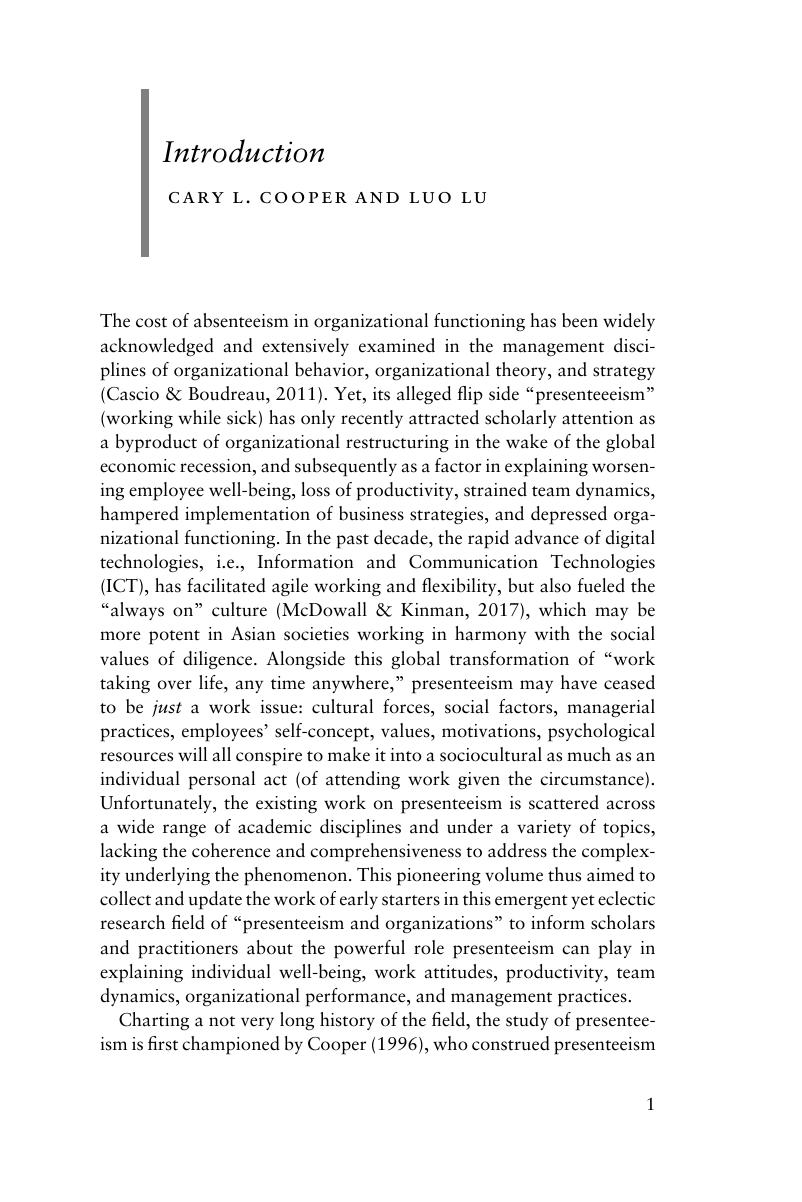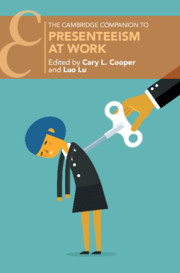Book contents
- Presenteeism at Work
- Cambridge Companions to Management
- Presenteeism at Work
- Copyright page
- Contents
- Contributors
- Foreword
- Introduction
- Part I Situating Presenteeism on the Global Stage
- Part II Understanding the Behavior of Presenteeism
- Part III Understanding the Consequences of Presenteeism
- Part IV Understanding Presenteeism in a Cross-Cultural Context
- Index
- References
Introduction
Published online by Cambridge University Press: 09 August 2018
- Presenteeism at Work
- Cambridge Companions to Management
- Presenteeism at Work
- Copyright page
- Contents
- Contributors
- Foreword
- Introduction
- Part I Situating Presenteeism on the Global Stage
- Part II Understanding the Behavior of Presenteeism
- Part III Understanding the Consequences of Presenteeism
- Part IV Understanding Presenteeism in a Cross-Cultural Context
- Index
- References
Summary

- Type
- Chapter
- Information
- Presenteeism at Work , pp. 1 - 6Publisher: Cambridge University PressPrint publication year: 2018



